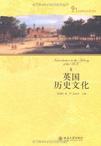英国历史文化
出版时间:2010-1 出版社:北京大学 作者:常俊跃//夏洋//赵永青 页数:235
Tag标签:无
前言
《英国历史文化》是在内容依托教学理念指导下,依托国家哲学社会科学项目“英语专业基础阶段内容依托式教学改革研究”推出的系列英语内容依托教材之一,是大连外国语学院优秀教学成果一等奖、辽宁省优秀教学成果一等奖、第六届国家级优秀教学成果奖获奖成果的重要组成部分。这套系列教材的推出具有重要的理论意义和现实意义。 随着我国英语教育的快速发展,英语专业长期贯彻的“以技能为导向”的课程建设理念及教学理念已经难以满足社会的需要。专家教师们密切关注的现行英语专业教育大、中、小学英语教学脱节,语言、内容教学割裂,单纯语言技能训练过多,专业内容课程不足,学科内容课程系统性差,高低年级内容课程安排失衡及其导致的学生知识面偏窄、知识结构欠缺、思辨能力偏弱、综合素质发展不充分等问题日益凸显。 针对上述问题,国家哲学社会科学项目“英语专业基础阶段内容依托式教学改革研究”以内容依托教学(CBI)理论为指导,确定了如下改革思路: (一)更新语言教学理念,改革英语专业教学的课程结构。在不改变专业总体培养目标和教学时限的前提下,对课程结构进行革命性的变革,改变传统单一的语言技能课程模式,实现内容课程——语言课程的融合,扩展学生的知识面,提高学生的语言技能。 (二)开发课程自身潜力,同步提高专业知识和语言技能。内容依托课程本身也同时关注内容和语言,把内容教学和语言教学有机结合。以英语为媒介,系统教授专业内容;以专业内容为依托,在使用语言过程中提高语言技能,扩展学生的知识面。 (三)改革教学方法手段,全面提高语言技能和综合素质。依靠内容依托教学在方法上的灵活性,通过问题驱动、输出驱动等方法调动学生主动学习,把启发式、任务式、讨论式、结对子、小组活动、课堂展示、多媒体手段等行之有效的活动与学科内容教学有机结合,提高学生的语言技能,激发学生的兴趣,培养学生的自主性和创造性,提升思辨能力和综合素质。 本项改革突破了我国英语专业英语教学大纲规定的课程结构,改变了英语专业基础阶段通过开设单纯的听、说、读、写四种语言技能课提高学生语言技能的传统课程建设理念,对英语课程及教学方法进行了创新性的改革。首创了有英语专业基础阶段具有我国特色的内容——语言融合的课程体系;率先开发了适合英语专业基础阶段的内容依托课程;系统开发了英语国家史、地、社会文化、欧洲文化、中国文化、跨文化交际、《圣经》与文化等教材;以英语为媒介,系统教授专业内容;以内容为依托,全面发展学生的语言技能;扩展学生的知识面,提高学生的综合素质,以崭新的途径实现英语专业教育的总体培养目标。
内容概要
《英国历史文化》是在内容依托教学理念指导下,基于国家哲学社会科学项目“英语专业基础阶段内容依托式教学改革研究”推出的系列英语教材之一。《英国历史文化》适用于英语专业一、二年级学生,也适用于具有中学英语基础的非英语专业学生和英语爱好者学习。本教材具备以下主要特色: ·遵循了全新的教学理念 以英国历史文化发展为线索,展现英国各段历史进程中的国家概况,既训练语言技能,也丰富相关知识。 ·涉及了系统的历史内容 帮助读者了解英国各段历史时期的重大事件,系统介绍英国历史文化发展背景。 ·引进了真实的教学材料 真实、地道的语言材料,穿插图表、照片等真实的视觉材料,表现手法活泼,效果生动直观。 ·设计了新颖的教材板块 每·单元均包括课前热身、课文正文、课后练习、辅助阅读、专有名词列表、娱乐园地等。结构安排系统合理,突出学生的主体地位。 ·提供了多样的训练活动 培养学生综合运用语言和知识进行沟通的能力、逻辑思维能力和探索求知的能力。 ·推荐了经典的学习材料 在每个章节的最后部分向学生推荐经典的书目、影视作品、名诗欣赏以及英文歌曲等学习资料,延伸课堂教学,激发学生的学习热情。
书籍目录
Unit 1 The Birth ofaNation Text A The Ancient Briton and Invasions Text B Anglo-Saxon England Text C King Arthur and the Knights of the Round Table Text D The Venerable Bede (673-735) Text E William and the Conquest Unit 2 The Normans Text A The Norman Monarchs Text B William the Conqueror Text C Feudalism after the Norman Conquest Text D The Doomsday Book Unit 3 The Early Plantagenet Text A The Rule of Law Text B The Feudal Way of Life Text C The Canterbury Tales Text D The CrusadesUnit 4 The House of Plantagenet Text A The Birth of Parliament Text B The Magna Carta Text C King John Unit 5 The 14th-century England Text A The Hundred Years' War Text B The Black Death and Wat Tyler Uprising Text C A Horrible Disease-The Black Death Text D War Tyler and His Revolting Peasants Text E Joan of Arc——Maid of OrleansUnit 6 The House of Lancaster and York Text A The Wars of the Roses Text B The Mystery of the Princes in the Tower Text C The Middle AgesUnit 7 The Tudor Age Text A The Tudor Monarchy Text B The Reformation in England (1517-1563) Text C King Henry VII Text D Henry VIII and His Marriage Text E Thomas More and the UtopiaUnit 8 The Elizabethan Age Text A The Reign of Elizabeth I Text B Queen Elizabeth I Text C Entertainment in Elizabethan Age Text D Defeat of the Spanish ArmadaUnit 9 The House of Stuart Text A The Age of Revolution Text B King JamesVIandI Text C The English Civil War Text D Oliver Cromwell Unit 10 The House of Hanover Text A The Hanoverian Monarchs Text B Napoleon Bonaparte (1769-1821) Text C King George III Unit 11 The Industrial Revolution Text A The British Industrial Revolution Text B Machines for the Industrial Revolution Text C The Consequences of the Industrial Revolution Unit 12 The Victorian Age (1837-1901) Text A Queen Victoria and Her Reign Text B Everyday Life in Victorian England Text C Charles Dickens (1812-1870) Text D Florence Nightingale (1820-1910) Unit 13 The World at War Text A The Great Britain in the World Wars Text B Causes of World War I Text C Winston ChurchillUnit 14 Towards the New Millennium Text A House of Windsor Text B Long Live the Queen! Text C Margaret Thatcher Text D The Growth of Great Britain in Americans' EyesUnit 15 Wales, Scotland and Ireland Text A The English Conquest of Wales Text B The Story of Scotland Text C The Ties between Ireland and the Great Britain Text D History of Wales Text E Duncan and Macbeth Appendixes Appendix 1 : Kings and Queens of England and Britain Appendix 2 : Genealogy of the Monarchs of England Appendix 3. Keys to the Exercises 主要参考文献和网站
章节摘录
From the middle of the 5th century, three Germanic (Teutonic) tribes, namely Jutes, Angles and Saxons, began to migrate from the region of Denmark and settled in Britain. The Christian Celts, in spite of their brave leaders like King Arthur, were wholly defeated. Those who escaped the sword were pushed back into the mountains of Wales and Scotland and across to Ireland. The Angles and Saxons from northern Germany spoke a language which we now call Old English. The Angles gave rise to the word "England" because "England" in Old English meant "the land of the Angles". The Angles and Saxons took possession of all the land as far as the mountains in the north and west, and divided it into a handful of small kingdoms. Essex and Sussex, the kingdoms of the east and south Saxons, are still the names of English counties. Then they settled down to work their farms. But their separate kingdoms could make no organized resistance to the next wave of northern fighters, the Vikings. Some of these came from Norway and attacked the rocky coasts of Scotland and northern England: but the main body came from Denmark, sailed up the rivers of the east and south, and seized one little Saxon kingdom after another. At the last moment, the Saxons were saved by the courage of King Alfred of Wessex, who defeated the Danes and forced their army to accept the Christian faith. Then he allowed them to settle in eastern and central England. Both the Saxons and the Danes had been accustomed to northern gods like Woden and Thor, whose names have given us Wednesday and Thursday. They believed that courage, loyalty and rough honesty are the greatest virtues. How did the Saxons become Christian? The question is answered by Bede, whose History of the English Church was written in Latin while these events were still within living memory. Bede was a Saxon but he used Latin because it was the international language of the Church. Pope Gregory, he said, was attracted by some fair-haired young slaves on sale in Rome. The Pope, who was head of the Roman Church, heard that these slaves came from England, and he decided to send a party of his priests to help the English people.
图书封面
图书标签Tags
无
评论、评分、阅读与下载
用户评论 (总计13条)
- 很好哦,书本全新。内容详实,是英语专业学生必备教材,配合英语国家概况课程使用。
- 集内容与语言技巧于一身,可以当精读来看,看完之后整个文化历史领域基本就不会有生单词了!
- 本书介绍酒店英语得很全面,包括了酒店的所有物品都一清二楚的。包括酒店的走火通过都有介绍,酒店里的餐厅都很全面,是知识面与实践面都很好的书。
- 我是英文老师,我推荐他
- 非常喜欢,要是再有中文翻译就好了
- 上课要用的书,质量不错,赏心悦目,送货也很快。
- 我很喜欢 我觉得对我有用 掌握了知识
- 挺好的,很值得一看。
- 恩 发货很快啊 而且优惠时买的,还便宜了~
- 文字简单, 结构清晰, 适合了解下英国简史
- 我以为里面是文配图的样子呢,后来发现真是教材啊。。。。有习题。。。。
- 该书内容还是满丰富的,但练习设计太多,跟我预想的不一样。当然,这是教材么,应该是有些练习的。印刷是彩印的,但不喜欢其黄色调。包括图片、练习的diections,推荐的网站等都处理成了黄色,倒是显得古旧,估计编辑是想突出这本教材的历史厚重感,不过,实在是瞅着眼晕不舒服
- 内容挺丰富的 还有练习题
